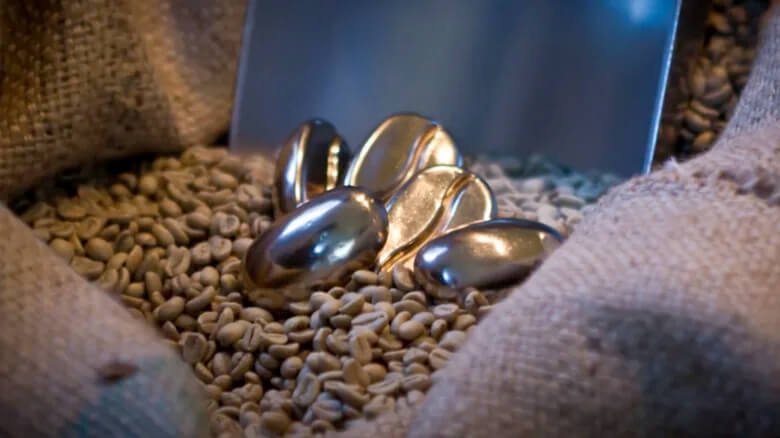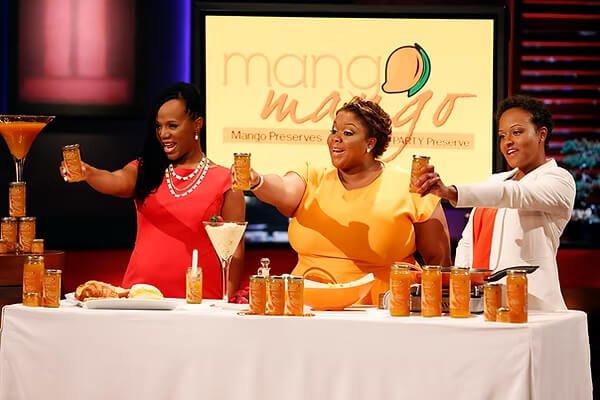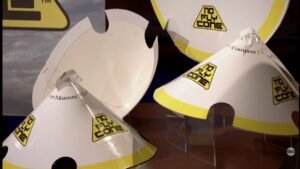Let’s kill the myth: landing a deal on Shark Tank is not the finish line. You can walk in, charm every billionaire in the room, leave waving a high-five contract… and still crash before you hit market shelves. Coffee Joulies is a textbook example. The founders bagged a sweet handshake on Season 4, got four Sharks onboard, and captured nationwide buzz. But now? The company’s gone, the website’s toast, and the product is only a memory in old Kickstarter emails or the odd eBay sale.
So, what actually happened? Was it the pitch, the deal, the product, or just good old operations grind that killed the run? This is the real Coffee Joulies Shark Tank story—no fluff, just straight shots about what worked and what didn’t.
Contents
ToggleWho Built Coffee Joulies?
Meet Dave Petrillo and Dave Jackson. Two mechanical engineers, two coffee obsessives, and honestly, two fundraising animals. Before Shark Tank, they crushed Kickstarter to the tune of over $300k. That’s real traction—more than most hardware ideas ever see.
Both Daves brought brains and hustle. These weren’t the let’s wing it types Shark Tank sometimes attracts. They built the molds in a U.S. factory, shipped out every backer reward, and handled PR like seasoned pros. If you want an example of what founders should look like on pitch day—prepared, credible, and already selling—you could do a lot worse.
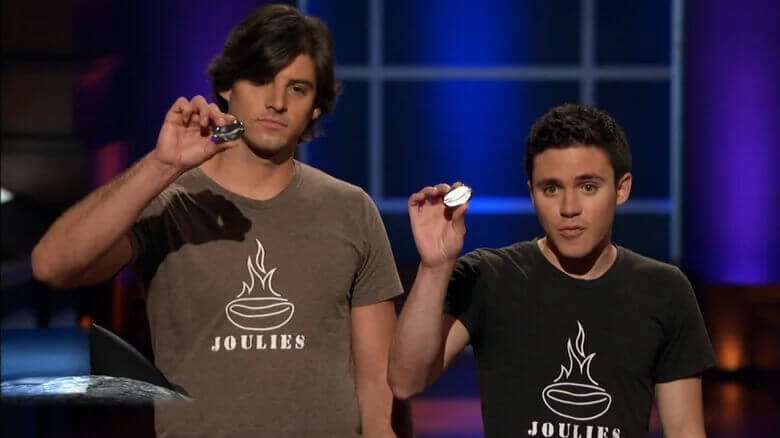
How These “Beans” Work (No Fluff)
Let’s get one thing straight: Coffee Joulies made sense. The product was simple and clever. You drop the stainless steel beans in your coffee while it’s piping hot. Inside each is a phase-changing material (think: special stuff that stores heat) sealed in food-grade steel.
Here’s the sales pitch, broken down:
- Too-hot coffee? The Joulies absorb the excess heat like magic.
- Once your coffee hits that sweet spot, the Joulies start releasing stored heat, keeping your cup warm for longer.
- No more burnt tongue. No more lukewarm mud.
Their audience was every office worker, mom, hustler, and road warrior sick of lukewarm brews. Oh, and it was made in New York—not China—so you could brag about buying American.
Did the product actually work as well as the hype claimed? Sort of. It did cool coffee down and slow the cooling rate, but it wasn’t mind-blowing for every user. Most buyers noticed some difference, but it was never going to be another Scrub Daddy-level product people bought in droves every holiday.
The Shark Tank Ask and Offer: Big Numbers, Bigger Betting
When Coffee Joulies hit Season 4, Episode 14 of Shark Tank, they didn’t play small. The Daves strolled in asking for $150,000 for 5% equity. Do the math and you get a $3 million valuation. Now, you’d expect some eye rolls—those numbers are spicy for two guys with a couple hundred grand of sales and a still-young product.
But this is where they played it right. They weren’t two inventors with no plan; they had real numbers, serious Kickstarter buzz, and a clear explanation of how they’d use the capital. The mood in the Tank changed quick—no Shark likes to miss out on a consumer win, especially with social proof already in play.
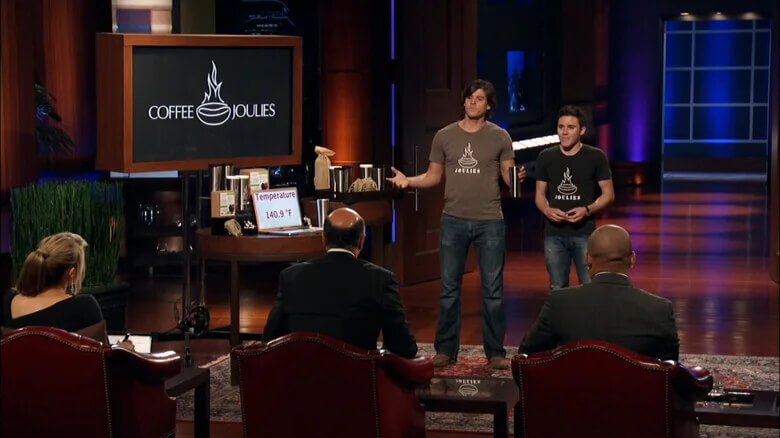
Coffee Joulies Net Worth and Valuation: What’s a Million Dollar Deal Really Worth?
Do numbers matter? Absolutely—but not as much as you think on TV. Coffee Joulies called themselves a $3M company. Their $575,000 in lifetime sales pre-Tank was impressive, but here’s the dirty secret: sales ≠ profit. Hardware is brutal on costs. Manufacturing in the USA, high-quality materials—margins get squeezed. A $3M valuation in the Tank is more about sizzle than steak.
Real operators know: don’t get fixated on TV net worth. It’s about post-show traction, reorder rate, shelf space locked in, and operational margins. Coffee Joulies did have a sales spike and lots of media after the episode, but that momentum is hard to sustain without the right backend. Their valuation plummeted once the hype faded and operations got tough.
Did the Sharks Close? The Real Deal Story
Now for the Shark Tank soap opera. Coffee Joulies got interest from the right players: Mark Cuban threw out $250K for a bigger cut. But the Daves went with the four-Shark team—Lori Greiner, Daymond John, Robert Herjavec, and Kevin O’Leary—for $150K, their original ask.
But here’s the twist most people don’t know: the deal was royalty-based. No equity for the Sharks. They were to get $3 per wholesale unit, $6 per retail unit, until paid back. After payback, $1 per unit forever.
This setup is a double-edged sword. On paper, it’s a Shark-friendly structure—upside with dangled cash, limited long-term risk. But in practice, these deals rarely get inked post-show. And that’s exactly what happened: due diligence hit, maybe the numbers didn’t check out, or maybe priorities shifted, but the investment never landed.
So, all that publicity, all those headlines about a Shark deal—but no checks, no wired cash, no real partnership.
Post-Show Hustle and Where It Unraveled
Here’s where the game gets real. Because I’ve seen this movie before: you get the Shark Tank bump, your site crashes, orders pour in—you think you’ve made it. But then comes the back-end headache.
Coffee Joulies experienced legit post-show surges. They sold out. They found themselves scrambling for inventory and juggling restock problems. Retailers wanted to talk, buyers were looking up Shark Tank coffee beans, and media wouldn’t stop calling.
But Kickstarter fans are not retail repeat buyers. Supply hiccups led to missed restocks. Their strategy shifted from wholesale/retail (big bulk buys, more exposure) toward direct-to-consumer. That sounds great, but it means you own everything—marketing, shipping, customer service—and every mistake hits you harder.
As the months rolled on, demand cooled. Reviews came in mixed. People who loved the idea bought early, but it didn’t become a viral, can’t-live-without-it product. That’s a tough place to be, especially when your pitch is built on novelty and the mass market still needs convincing.
By 2023, their website was dead and no stores were reordering. The Coffee Joulies name faded out quietly.
Where’s Coffee Joulies Now?
To put it bluntly: Coffee Joulies is done. Their website’s gone, there’s no retail left, and you can only spot unopened sets on the secondhand market. There’s no plan for a reboot or relaunch in 2025. The founders—Dave Petrillo and Dave Jackson—still technically own the IP, but they’ve moved on.
Would there be demand if they brought it back? Maybe for nostalgia or techie kitchen collectors, but not on any real scale. The novelty has cooled off, and competitive copycats in the smart mug space have saturated whatever original niche Joulies had claimed.
Lessons for Entrepreneurs: What Can You Take From the Coffee Joulies Story?
Now, here’s where I get direct. If you’re just watching Shark Tank for the sizzle, you’re missing the point. This story is full of lessons—for the side hustler, the dreamer, the next Dave out there.
Kickstarter is traction, not a full business. You need more than hype and early adopters for retail survival.
Sales spikes aren’t the same as brand loyalty. If people buy once but don’t rebuy (or talk you up everywhere), you’re constantly hunting new leads.
Operations will kill you faster than competition. If you can’t fulfill orders and keep retailers happy, the best product in the world won’t save you.
Valuation is just a negotiation anchor. Don’t let a TV number go to your head. Real value is what people keep paying for years after launch.
Shark Tank exposure is a moment—execution is a lifetime. The cameras turn off, and then the real grind starts.
Royalty deals are rarely simple. If a Shark wants $X per unit forever, ask yourself who’s winning five years out.
Founders must be flexible. Coffee Joulies played both wholesale and DTC but found themselves squeezed by supply chain headaches and shifting strategies.
You don’t need to invent the next Keurig or Patagonia to win as an entrepreneur—but you do need a product people keep talking about, systems that scale, and maybe a bit of luck along the way.
If you want a cheat sheet on what to watch for, SharkWorth covers post-show stories like this all the time: hype versus real revenue, five-year net worth, and which big Shark Tank winners are actually killing it now.
FAQs: Shark Tank, Coffee Tech, and the Aftermath
1. Is Coffee Joulies still in business?
No. The brand closed up shop for good in 2023.
2. Did they get real Shark money?
Nope. The royalty-based deal fell apart after the show’s post-pitch process.
3. How much did they sell before Shark Tank?
Over $575,000, including a $300k+ Kickstarter run.
4. Who owns Coffee Joulies today?
Dave Petrillo and Dave Jackson, but it’s just a name now—no sales, no site, no staff.
5. Can you buy Coffee Joulies anywhere?
Not new. Maybe on resale sites, but not from any official store or the original website.
6. Why didn’t the Shark Tank deal finish?
After the cameras, due diligence and the royalty model killed it. No checks ever got written.
7. Was it made in the USA?
Yes, all units produced at Sherrill Manufacturing in New York.
8. Biggest entrepreneurial takeaway?
Early buzz is thrilling—sustainable operations beat viral moments every time.
Coffee Joulies isn’t just a case of what could have been. It’s an entrepreneur’s cautionary tale—the kind we dissect at SharkWorth, so you can learn from both the wins and the faceplants.
Want a story with all the polish, none of the pretense, and lessons you can actually use on your own hustle? Keep reading, keep learning, and don’t let a TV deal define your company’s finish line. Because, as Coffee Joulies proved, real business happens after the Sharks swim away.

